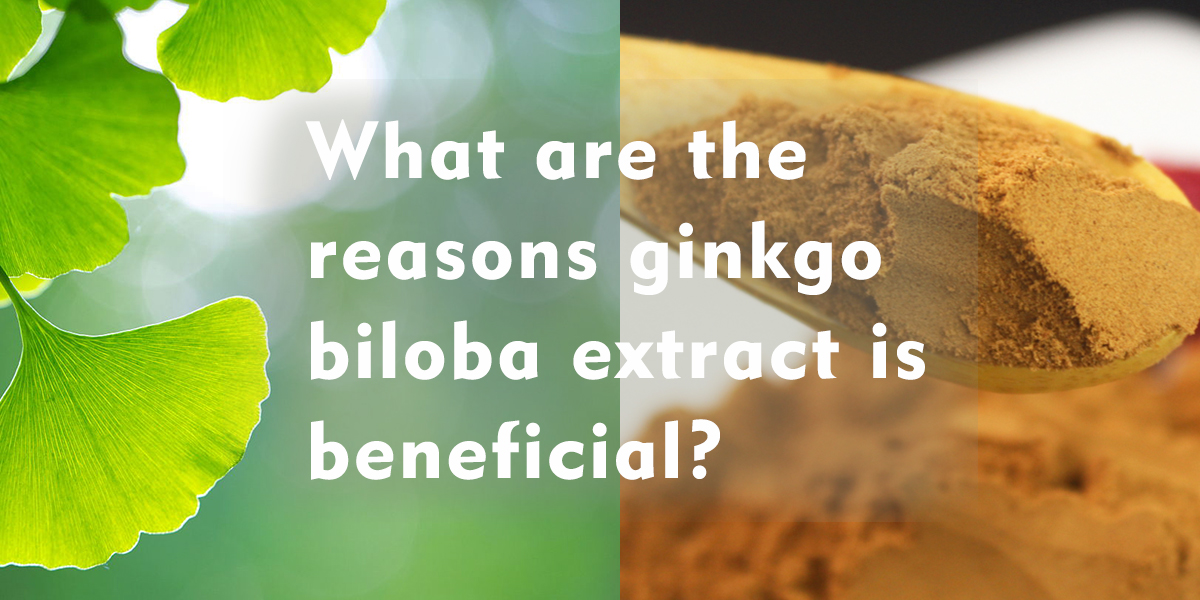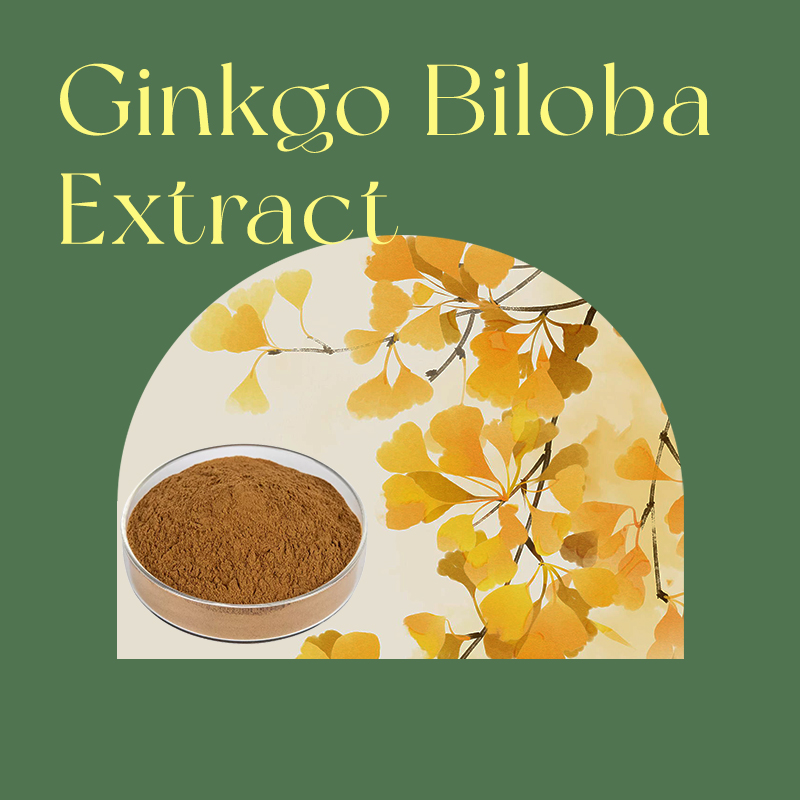Ginkgo Biloba is often of interest to people due to its long history of medicinal use, its potentially beneficial effects on a range of health conditions, and its use in traditional Chinese medicine. Recent years, it is many times a situation that the demand exceeds supply. So what are the reasons ginkgo biloba extract is so hot?
What are ginkgo biloba extracts?
Ginkgo Biloba extract is derived from the leaves of the Ginkgo Biloba tree, which is one of the oldest living tree species in the world. The primary active components in Ginkgo Biloba extract are flavonoids and terpenoids. This extract is commonly used as a dietary supplement due to its potential health benefits.
The benefits of Ginkgo Biloba Extracts' ingredients
Ginkgo biloba extracts boast a diverse array of beneficial biological activities due to their unique compositions. Each component plays a crucial role in promoting overall health:
1. Flavonoids: These compounds are known for their potent antioxidant properties. Antioxidants are vital for defense against cellular damage from free radicals that can lead to conditions like heart diseases and cancers. In brain health, they help protect neurons against oxidative stress, enhancing their functionality and possibly slowing down brain aging or neurodegenerative diseases.
2. Terpenoids: These bioactive compounds, specifically ginkgolides, and bilobalides, are unique to ginkgo biloba. Terpenoids have been proven to alleviate symptoms of asthma and vertigo. However, in regard to brain health, the primary benefits come from their ability to improve blood flow, including microcirculation in small capillaries supplying the brain and other vital organs. This can boost nutrient and oxygen supply, in turn enhancing cognitive function and brain health.
3. Antioxidants: Apart from flavonoids, ginkgo Biloba extracts also contain other antioxidants. These play a crucial role in combatting harmful oxidative stress, which is implicated in aging and various neurodegenerative diseases. In essence, these antioxidants further enhance the neuroprotective effects of ginkgo biloba.
In addition, the constituents of ginkgo biloba extracts also possess anti-inflammatory properties that could suppress inflammation in brain tissues, strengthen the immune system and potentially lower the risk of chronic diseases.
What studies said.
In order to substantiate the efficacy of Ginkgo Biloba extract and its clinical application, numerous medical experiments have been conducted over the past several decades.
1. A 2020 study published in the "NIH U.S. National Library of Medicine" found that Ginkgo Biloba extract could potentially delay the onset of cognitive decline in elderly adults.
2. A 2020 study published in "Biomedicine & Pharmacotherapy" demonstrated that Ginkgo Biloba extract could have therapeutic potential in managing diabetes-related complications due to its antioxidant and anti-inflammatory properties.
3. A 2018 meta-analysis published in "Frontiers in Pharmacology" found that Ginkgo Biloba extract could improve cognitive performance in patients with mild cognitive impairment and Alzheimer's disease.
4. A 2018 study published in the journal "Food and Chemical Toxicology" demonstrated that Ginkgo Biloba extract could potentially be used as adjuvant therapy for treating anxiety and depression because of its anti-stress and antioxidant effects.
Safety and Risk
Ginkgo biloba is generally considered safe for most people when used appropriately and in moderation. However, like any supplement or herbal remedy, there can be potential side effects and interactions to be aware of. Here are some key points about the safety and potential side effects of Ginkgo biloba:
Common Side Effects: Some individuals may experience mild and transient side effects, including upset stomach, headache, dizziness, and allergic skin reactions. These side effects are usually not severe and tend to resolve on their own.
Bleeding Risk: Ginkgo biloba has been associated with a potential increase in bleeding risk due to its effect on blood clotting. People with bleeding disorders, those taking blood-thinning medications (such as aspirin or warfarin), or those about to undergo surgery should exercise caution and consult a healthcare professional before using Ginkgo biloba.
Interactions: Ginkgo biloba can interact with certain medications, including blood thinners, antidepressants, anticonvulsants, and certain herbal supplements. It's important to discuss potential interactions with a healthcare provider if you're taking other medications or supplements.
Seizures: In some rare cases, Ginkgo biloba supplementation has been associated with an increased risk of seizures, particularly in individuals with a history of epilepsy or those taking medications that lower the seizure threshold.
Allergic Reactions: Allergic reactions to Ginkgo biloba are possible, although they are relatively rare. If you experience symptoms such as rash, itching, or swelling after taking Ginkgo biloba, discontinue use and consult a healthcare professional.
Pregnancy and Breastfeeding: Ginkgo biloba should be avoided during pregnancy and breastfeeding.
Dosage and Quality: The appropriate dosage of Ginkgo biloba can vary, and it's important to follow the recommendations on the product label or those provided by a healthcare professional.
Individual Variability: People may respond differently to Ginkgo biloba. Some individuals may experience significant benefits, while others may not notice any changes.
Final words
The extracts of Ginkgo Biloba possess antioxidant characteristics that could potentially lessen inflammation and enhance circulation. Preliminary studies suggest that Ginkgo Biloba could help manage high blood pressure, augment eye health, and improve memory and cognition. However, we should know that ginkgo biloba is similar to other supplements that are all for better body health instead of treatment purpose.
Contact us
Social Access : Facebook Instagram Twitter LinkedIn Youtube Pinterest Tumbler


Comments
Post a Comment